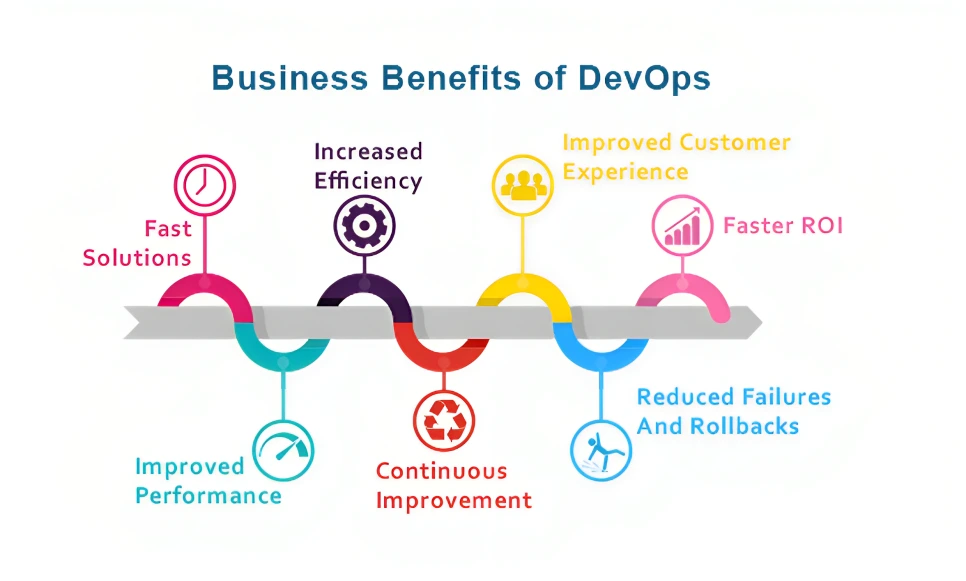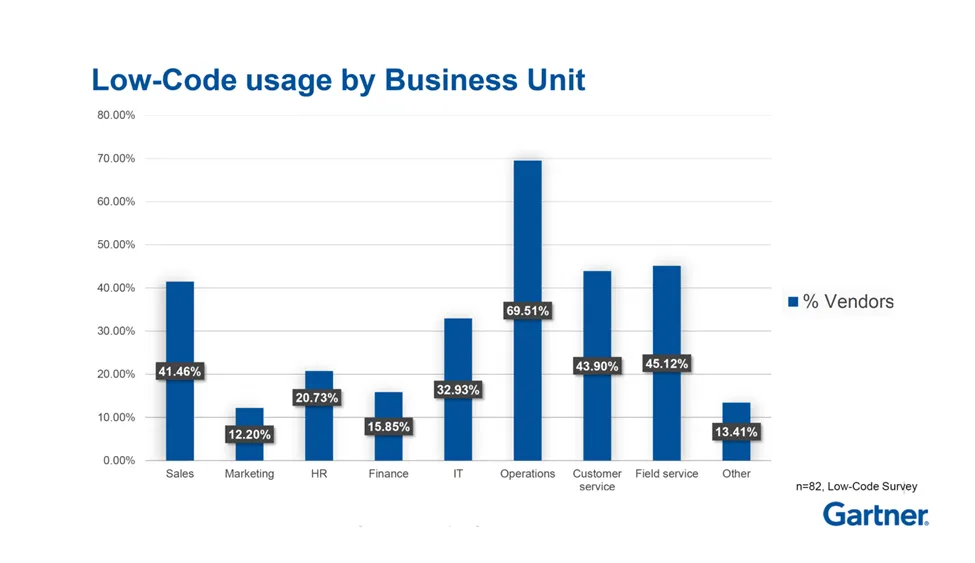Understanding the fundamental tenets of DevOps is crucial before exploring how low code fits into the culture. DevOps is a software development methodology that promotes collaboration, communication, and automation among development, operations, and quality assurance teams. DevOps' main objective is to facilitate quick and effective application development, enabling teams to produce software more quickly and with greater quality.
DevOps emphasizes continuous integration and delivery (CI/CD), automation, and a culture of collaboration and shared responsibility.
1. Accelerating Application Development
One of the key advantages of using a low-code strategy is the potential to speed up application development. DevOps values speed and efficiency and low-code systems follow these guidelines. Using visual interfaces and pre-built templates, developers may easily design application components with low code. This eliminates the need to write code from scratch, resulting in a significant reduction in development time.
Low-code platforms allow developers to concentrate more on providing value to consumers rather than becoming bogged down in monotonous and time-consuming duties by simplifying and automating key components of the development process. Finally, this acceleration in development eliminates bottlenecks and corresponds with the key DevOps principles.
2. Empowering Collaboration and Communication
DevOps culture emphasizes collaboration and communication between teams involved in the software development life cycle. Low-code platforms foster collaboration by providing a uniform environment in which developers, quality assurance teams, and operations teams may seamlessly collaborate. These platforms frequently contain features such as real-time collaboration, version control, and integrated feedback systems, which facilitate team communication and sharing.
With low code, everyone involved in the development process may contribute to the design and development of the application, providing useful insights and feedback along the process. This collaborative workplace promotes effective communication and collaboration, advancing the DevOps culture.
3. Enabling Continuous Integration and Delivery
Continuous Integration and Delivery (CI/CD) are essential components of the DevOps culture. CI/CD involves continuously integrating code changes, running automated tests, and delivering new features or bug fixes to production environments. Low-code platforms offer built-in support for CI/CD by providing automated testing, version control, and deployment capabilities. Developers can easily define, automate, and manage the entire CI/CD pipeline using visual tools and configurations.
The visual nature of low-code platforms makes it easier to track and manage changes, ensuring that new features and bug fixes are properly tested before being deployed. This integration between low-code and CI/CD enables teams to achieve shorter development cycles and faster feedback loops, aligning with the core principles of DevOps.
4. Minimizing Technical Debt
In DevOps, the focus is not only on rapid development but also on long-term maintainability and sustainability. Traditional coding practices can sometimes lead to technical debt, where shortcuts and quick fixes are implemented to meet immediate needs. This can make it harder to implement continuous improvement and innovation in the long run. Low-code platforms enforce best practices and provide guardrails to ensure that developers follow standardized patterns and practices.
By following these best practices, developers can minimize technical debt and ensure that the application is maintainable and scalable over time. Low-code platforms often include features such as automated code generation, code reviews, and adherence to coding standards, helping teams to mitigate technical debt and maintain a healthy codebase. By minimizing technical debt, low-code development platforms contribute to the overall health and stability of the application, aligning with the DevOps culture.
5. Embracing Flexibility and Scalability
The DevOps culture promotes software development flexibility and scalability. Applications must be able to adapt to changing requirements as well as handle increasing workloads. Low-code platforms make rapid prototyping and iterative development possible, allowing teams to quickly adapt to changing requirements. Developers may quickly construct prototypes and receive feedback from stakeholders by using visual tools and pre-built components. This iterative technique facilitates the incorporation of changes and the rapid delivery of new features.
Furthermore, low-code components' modular and reusable nature makes scaling programs easier as needed. Low-code platforms enhance scalability and ensure the program can withstand increasing workloads by allowing users to add and delete components. This scalability and flexibility coincide with DevOps ideals, which emphasize agility and adaptation.























